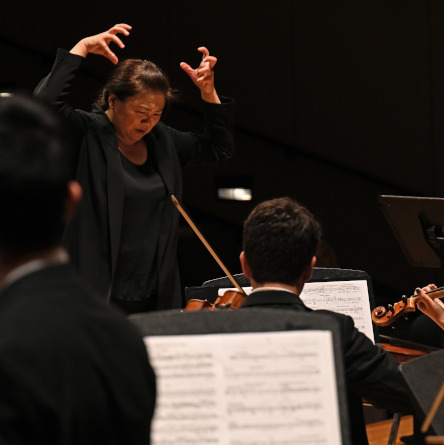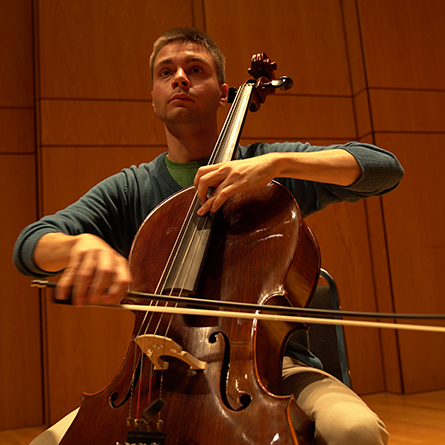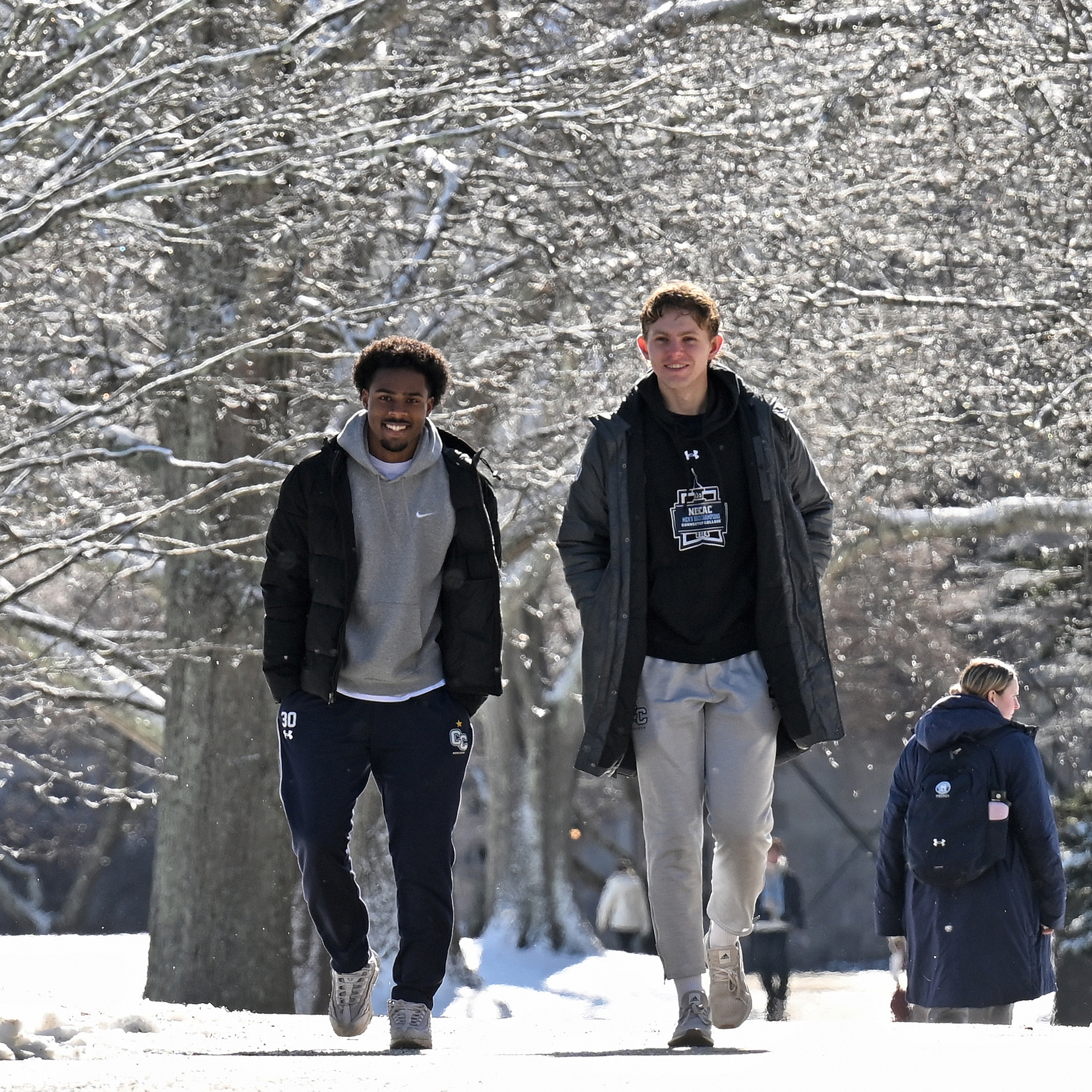
The promise of music
A unique gift provides Conn students with private music lessons at no charge

When Gerard Lanzano ’17 transferred to Conn from McGill University, Pyotr came with him.
Pyotr is a cello named in honor of Russian composer Pyotr Ilyich Tchaikovsky. It lives in an oversized locker in Cummings Arts Center. Every week, Lanzano takes his pride and joy to one-on-one lessons with cellist Christine Coyle, a member of the Eastern Connecticut Symphony Orchestra and an adjunct professor at the College.
Lanzano, a math major, also takes voice lessons. And piano lessons.
All these lessons are free, thanks to the Jack Niblack ’98 Music Lessons Fund.
A gift of John and Heidi Niblack in honor of their son, a strings player who died in a 1997 car accident, the fund has paid the private music lesson fees for Conn students in any major for more than 12 years.
“A lot of kids tell me the lessons are the reason they came to Conn instead of someplace else,” said John Niblack, who also established the Jack Niblack ’98 Music Scholarship and Internship Fund at the College, among other generous gifts. “Many of them aren’t music majors; they just like music and like playing an instrument.”
Isabelle Dumoulin ’18 is one of those students. An English major and French and German studies double minor, Dumoulin has loved playing the flute from the moment she “could produce an actual sound.” She’s played in countless school bands, flute ensembles and orchestras, including the Bridgeport Youth Orchestra.
The promise of music attracted her to Conn.
“Connecticut College was the only school that not only offered music lessons, but free music lessons. That immediately put Conn at the top of my list,” she said.
At most schools, Dumoulin would have to pay a fee of $600-$1,200 for her private lessons with adjunct Professor of Music Patricia Harper.
“The flute has become a wonderful outlet for me to de-stress and do something that makes me happy. All of my academic studies at Conn revolve around different languages, and music has become another language for me,” Dumoulin said.
During the 2015-2016 academic year, 135 students took the free lessons, which are offered on campus for any orchestral or band instrument, as well as classical guitar, voice, harp, piano, organ, harpsichord, jazz piano, jazz clarinet and jazz saxophone.
Of those students, 124 majored in something other than music. The most popular majors were economics, psychology and the sciences.
“Music is important for our students, no matter what they are studying,” said Associate Professor of Music Midge Thomas. “It helps them emotionally, it can help them develop social skills, and research has shown that engaging with music is very good for brain development.”
Students earn one or two credits for the lessons, which are graded. To be eligible, they must take a music theory course and perform in a College ensemble for at least the first four semesters of study.
For philosophy major and clarinet player Saadya Chevan ’19, performing Antonin Dvorak’s Symphony No. 9 “From the New World” with the Connecticut College Orchestra was a highlight of his first semester on campus.
During his second semester, Chevan performed Willson Osborne’s Rhapsody for Clarinet in a Music Department recital.
“That was a really interesting, very abstract piece that I’d discovered while doing research on compositions written for solo clarinet,” he said. “As I started to put the piece together, I began to appreciate the emotions I felt while performing it: the simplicity of the beginning, the teasing moments and the fiery fortes.”
Performances at Conn, which are open to the public, are significantly enhanced by the influx of students like Chevan who might not otherwise have the means or opportunity to participate, says Thomas.
“Some of our best performers are not music majors, just really strong musicians who studied with our instructors,” said Thomas. “Every spring, for example, seniors give fabulous recitals that wouldn’t be possible if they weren’t studying with these world-class musicians.”
Lanzano, who has played the cello since fourth grade, said the lessons inspired him to try something completely new—piano.
“My parents bought a piano for me when I was in second grade, but I never got the chance to learn, so it functioned as a fancy trophy shelf for many years,” he said.
“Finally learning to play is a dream come true.”
January 12, 2017
